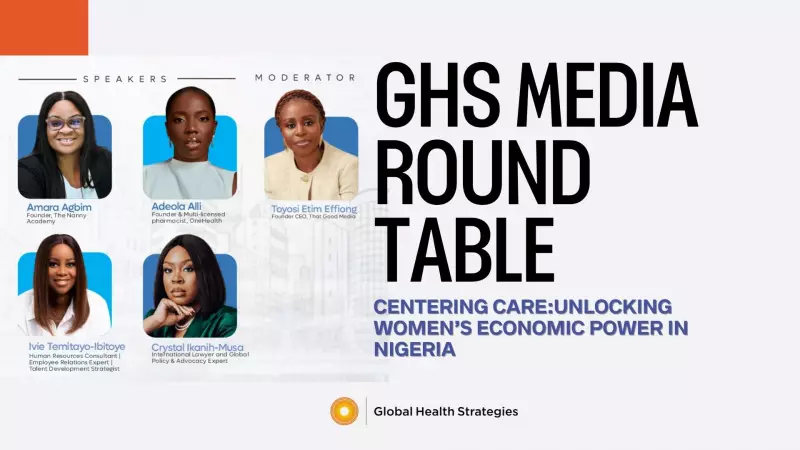
In a groundbreaking shift that's redefining traditional gender roles and economic opportunities, care work is emerging as Nigeria's next major economic engine for women. As the world marks International Day of Care, Global Health Services (GHS) is leading a revolutionary movement that's turning caregiving from unpaid labor into profitable, sustainable careers.
The Care Economy Revolution
Across Nigeria, thousands of women are discovering that their natural caregiving abilities can translate into substantial economic empowerment. Through comprehensive training programs and professional development initiatives, GHS is creating a new generation of skilled care professionals who are transforming communities while earning sustainable incomes.
From Domestic Duty to Economic Driver
The traditional view of care work as unpaid domestic responsibility is rapidly changing. GHS programs are demonstrating that with proper training and support, care work can become a formal sector offering competitive wages, career advancement, and professional recognition.
Women who previously struggled to find employment are now becoming certified care professionals, earning incomes that support their families and contribute to local economies. The ripple effect is transforming entire communities as financial stability grows.
Building Skills, Building Futures
The GHS approach goes beyond basic training. Participants receive comprehensive education in:
- Professional caregiving techniques
- Healthcare fundamentals
- Business management skills
- Financial literacy
- Communication and client relations
Economic Impact Beyond Expectations
The economic transformation is nothing short of remarkable. Women who complete GHS programs report significant increases in household income, with many becoming primary breadwinners for their families. Local economies benefit as these newly empowered women invest in education, healthcare, and small businesses within their communities.
A Sustainable Model for Growth
What makes the GHS initiative particularly impactful is its sustainability. By creating a formal care economy with structured career paths and ongoing professional development, the program ensures that economic gains continue to multiply rather than remaining temporary solutions.
The growing demand for professional care services in Nigeria, driven by urbanization, changing family structures, and increased healthcare awareness, means these newly created jobs are likely to remain relevant and in-demand for years to come.
Looking Toward the Future
As Nigeria continues to develop its formal care sector, the potential for economic growth and women's empowerment appears limitless. The GHS model demonstrates that when women's traditional strengths are properly valued and professionally developed, they can become powerful drivers of national economic progress.
This International Day of Care, Nigeria stands as a shining example of how recognizing and professionalizing care work can transform not just individual lives, but entire economies.





